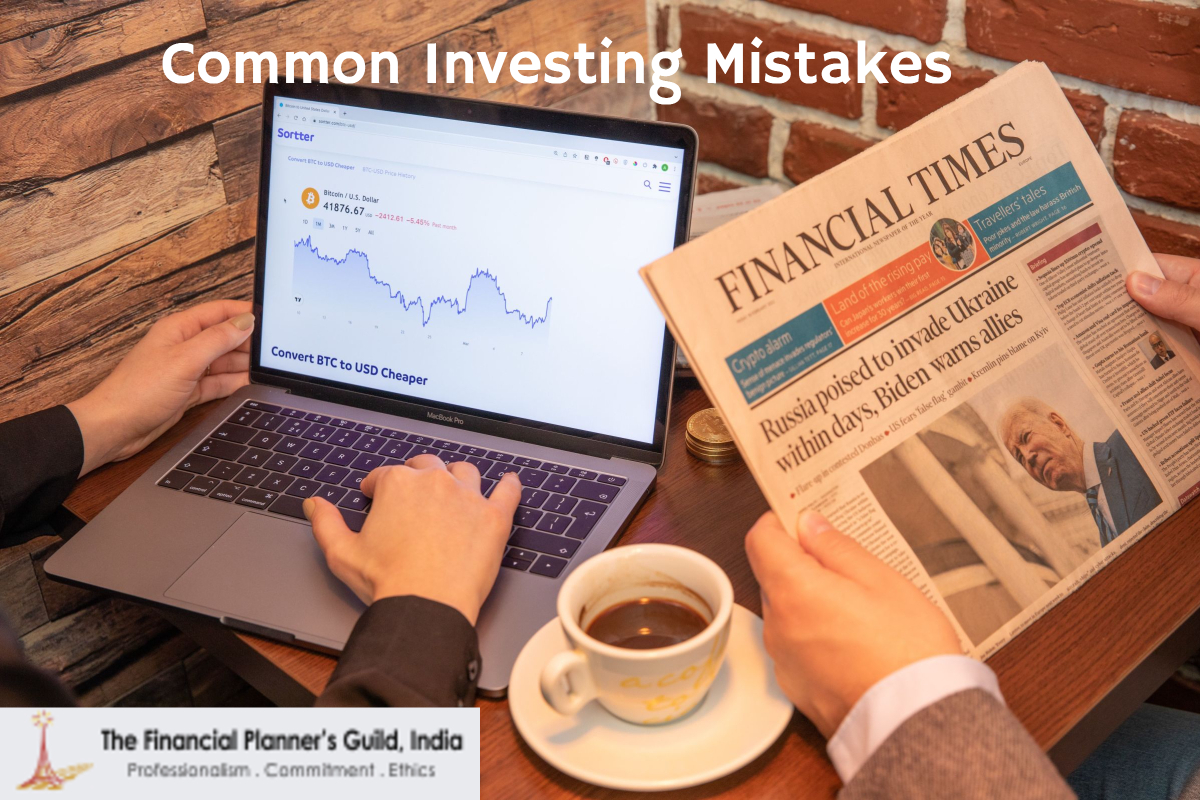
“You only have to do a very few things right in your life so long as you don’t do too many things wrong.”
~ Warren Buffett
Investing sounds very simple – Buy low, sell high and make money. But, practice is different than theory. If it were that simple, everyone would be a millionaire.

One of the keys to making money in investing is to avoid making mistakes. Often, obvious mistakes are the ones most repeated in life. Investing does not escape this paradox. People have short memories and history usually repeats itself in the financial world. If you can avoid the common investing pitfalls, you will greatly enhance your ability to make money. Overall, investing can be a simple process if you do it the right way. Generally, people make investing more difficult than it needs to be. Being aware of the following mistakes and avoiding them along with a sound personal financial plan could save you a lot of time, money and energy.
1. Not Having an Investment Plan
As the old saying goes, “if you don’t know where you’re going, any road will do”. The first and most common mistake that investors make is not having a Personal Investment Plan that addresses their goals and objectives (Remember, beating the market is not a goal), risks, appropriate benchmarks, asset allocation and diversification. What are you saving for and how much do you need? Are you saving for retirement, your kid’s education, or for buying your dream house? Will you need this money in 5, 10 or 25 years? You need to know these things before investing to make sure that you choose investments that best fit your situation.
2. Starting to Invest Too Soon
Conventional wisdom says invest now, but there are reasons not to invest now. Many new investors hear a story about some friend or colleague tripling his profit in three months and rush home to tell their family they need to start investing. Remember, there is a right time to start investing – when your finances are in order. For example, you should consider paying off your debt before you start investing. Start investing when you have learned how to start investing and have a basic understanding of how an investment will benefit you.
3. Looking for Instant Results & Having too Short of a Time Horizon
Most investments take time to grow, particularly if you invest in stock market. Too many investors make the mistake of getting frustrated easily and selling quickly. While there are successful day traders, it is not recommended for most people and not the recommended way to build an investment portfolio. If you are saving for retirement 20 years hence, what the stock market does this year or next shouldn’t be a concern. Of course, if you are saving for daughter’s graduation 3 years hence, then your time horizon is appropriately short and your asset allocation should reflect this fact. But, most investors are too focused on the short term even when pursuing long-term financial goals.
4. Following the Herd & Frequently Changing Your Investment Strategy
Following the herd mentality has led people to make some of the devastating investment mistakes. Any investment that has become a widespread topic of conversation or has been hyped by media is very likely to be unsuccessful. So don’t let the crowd trick you into either excitement or anguish. Research investment options well and shortlist on the basis of not just past performance but also the future prospects. Many investors select asset classes, strategies, managers and funds based on strong past performance. If a particular asset class, strategy or fund has done extremely well for 3-4 years, you should have invested in it 3-4 years ago. Now the particular cycle may be nearing its end; smart money might be moving out and dumb money might be pouring in. So, stick with your investment plan and rebalance.
5. Ignoring the Power of Simplicity
Remember, success lies in simplicity. Usually, people make investing more difficult than it needs to be. In 2005-06, Buffett largely avoided mortgage-backed securities and derivatives that found their way into many investment portfolios. His view was that they were too complex and opaque. He called them “financial weapons of mass destruction.” When they brought down many financial institutions and ravaged almost the entire financial system, Berkshire Hathaway (Buffet’s company) avoided worst of the meltdown.
6. Too Much Attention Given to Financial Media
Financial news shows hardly help you achieve your investment goals. Think about it – if anyone really had profitable stock tips, trading advice or a secret formula to make big money, would they share it on TV or sell it to you for Rs. 999 per month? No – they’d keep their mouth shut and make their crores. So, spend less time watching financial shows or reading newsletters and spend more time creating, and sticking to, your investment plan.
FPG India ©2024. All Rights Reserved.
Designed & Developed by W3M Technoz
Comments are closed.